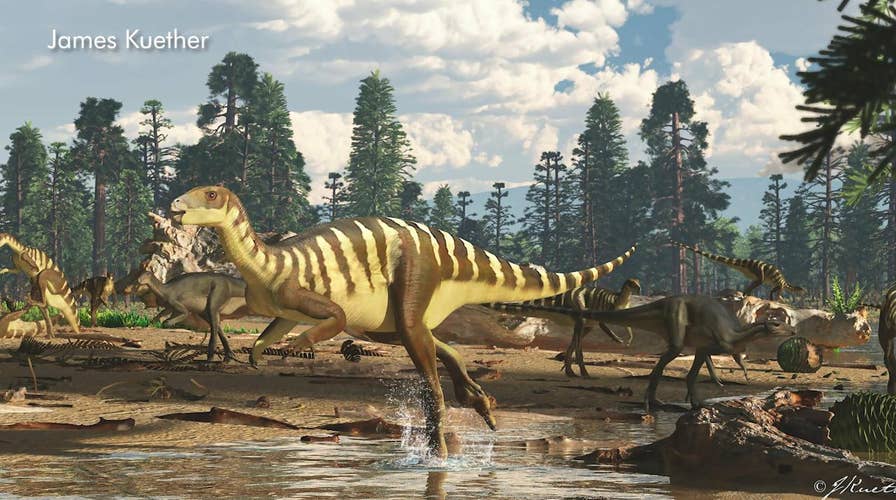Fossil of small dinosaur discovered in Australia
A small dinosaur, Galleonosaurus Dorisae, was found in Victoria, in the Southeastern part of the continent of Australia.
The land down under is now the land before time.
A new dinosaur species that lived 125 million years ago has been discovered in Australia, one so small, it was likely the size of a wallaby.
Known as Galleonosaurus Dorisae, this herbivore was found in Victoria, in the southeastern part of the continent. It inhabited the Australian-Antarctic rift valley, an area once flush with vegetation but has become lost for eternity, as the Earth's plates shifted and continents broke apart.
BABY T. REX WAS AN ADORABLE BALL OF FLUFF
"This land has now vanished, but as 'time-travellers' we get snapshots of this remarkable world via the rocks and fossils exposed along the coast of Victoria," Dr. Matthew Herne, a Postdoctoral Fellow at the University of New England, said in a statement. For comparison, wallabies range in size from 12 inches to 41 inches, according to National Geographic.
While small in stature, it's likely that the Galleonosaurus dorisae – whose name refers to the shape of the dinosaur's jaw – "would have been agile runners on their powerful hind legs," Dr. Herne added.
Prior to finding Galleonosaurus Dorisae, the only other dinosaur found in this area had been Qantassaurus intrepidus. "However, the plethora of vertebrate fossils collected from Flat Rocks suggests that further dinosaurs await discovery," the study's abstract reads.
Although Qantassaurus intrepidus was a similarly-sized dinosaur, it fed on different plants, which Dr. Herne believes "would have allowed them to coexist."
Dr. Herne said that the presence of the Galleonosaurus Dorisae in the Victoria region "confirms that on a global scale, the diversity of these small-bodied dinosaurs had been unusually high in the ancient rift valley that once extended between the spreading continents of Australia and Antarctica."
CLICK HERE TO GET THE FOX NEWS APP
The study was published in the Journal of Paleontology.









































